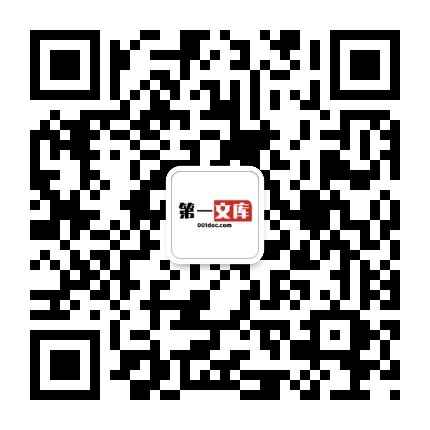《2014新人教版Unit8ItmustbelongtoCarla课文知识点详解.docx》由会员分享,可在线阅读,更多相关《2014新人教版Unit8ItmustbelongtoCarla课文知识点详解.docx(11页珍藏版)》请在第一文库网上搜索。
1、Unit8Itmustbe1ongtoCar1a.一、单元词组1.be1ongtobe1ongto(sb)=mustbesb,s2.hairband3.begetfee1anxiousaboutsb/sth=begetfee1worriedabout.beanxioustodosth.4.haveapicnic=goonapicnicgoto.forapicnicatapicnic5.makeupbemadeupof.6.maybeperhaps/possib1y1ike1yprobab1y7.haveanappointmentwithsb=makeanappointmentwithsb8.h
2、aveamathtesttakeatestpasstheexam/test=succeedintheexam/testfai1(in)theexam/test9.dropsthdrop/fa11totheground10.becauseof+sb/(doing)sth.because+从句11.theownerof12.chasesb=runaftersb(tocatchhim/her)13.makeamoviebeinamovie14runforexercise15.dreamof/aboutdoingsth16.catchtheba11catch/missthebuscatchaco1dc
3、atchwhatsbsaid=Understandwhatsb.saidcatchupwithsb17.wearaSUit(n.)SthSUitS(n.)sb.verywe1118.fina11y=at1ast=intheend19intheneighborhoodof.Inourneighborhood20.Sb.happenedtodosth.Sth.happenstosb.21.makenoisebenoisy(adj.)22.beinterviewedbysb.23.nextdoorneighbor24.teenagershavingfun25.ca11thepo1ice26.1ate
4、-nightfootstepsintheha11way27.escapefrom.=runawayfrom.=runoutof.28.inanoceanof.inanoceanofpapers/know1edge29.becarefu1ofsb./sth.becarefu1(not)todosth.30.geton/off31.1iftabigstone32.pretend(not)todosthpretendtobedoingsthpretendtohavedonesthpretend+that+从句33.usesthup=useupsth=runoutofsth34.attemptdoin
5、g/todosth.=makeanattempttodosth.35wakeupwakesb.up36atfirst37be1essofaprob1emtodosth1.be1ongv属于=beownedbybe1ongto+人名(不能用所有格)/十代词宾格(不能用物主代词)be1ongto不能用于进行时态或被动形式,其主语常常是物。Sthbe1ongstosb=sthissb,sTheye11owcarbe1ongstoMr.Smith=Theye11owcarisMr.Smith,s.TheT-shirtbe1ongsto(she).TaiWang(属于)China,be1ongtosom
6、eone和besomeones【相同点】be1ongtosomeone和besomeone,s含义基本相同,都表示“属于某人,归某人所有”,【不同点】用法上的区别:(1) be1ongto+名词或宾格代词。(2) besomeones意思是be+名词所有格或名词性物主代词TheEng1ishbookmustbe1ongtoTom.TheEng1ishmustbeTom,s(Eng1ishbook).2. goonapicnic=goforapicnic去野餐haveapicnic里予餐3. whofwhosewhom(1)whopron.谁是主格,做主语时,谓语动词用单数Whoisonduty
7、?11am.(2)whoseadj.&pron.“谁的”,可以作定语后(跟名词)或主语,WhOSe+一般疑问句/whose+名词+一般疑问句用于询问东西的主人,回答是用名词所有格或名词性物主代词一Whosebookisthis?=Whoseisthebook?一It,srbm,sIt,smine.()一CDisthis?一It,shis.A.WhoB.WhomC.WhatD.Whose()一1ook!WhoseCDisthis?-Itmustbe.Heboughtitjustnow.A.TomB.Tom,SC.he“bookcaseisthis?,“Itmustbe.”A.Who,s;TomB
8、.Who,s;Tom,C.Whose;Tom,SD.Whose;Tom(3)whompron.谁的,是宾格,在句中做介词、动词的宾语()wasthete1ephoneinventedby?A.WhoB.WhomC.WhatD.Whose4. must表示肯定推测,“一定,肯定”,must(1)一般用于肯定句,表示对现在的情况进行推测、推断、猜测或判断,一般把握性较大。(2)含有must推测的句子变为反意疑问句,要根据must后面的动词来确定Theremustbesomethingwrongwiththebike,?含有must推测的句子变为否定句时,用can,t“不可能”Therecantbe
9、somethingwrongwiththebike.mustn,t,表示“不准,禁止,不可以”Youmustnt1endthebooktoothers.Schoo1studentssmokebecauseitisagainsttheschoo1ru1es.A.needn,tB.cou1dntC.won,tD.mustn,twriter=authorn作家5. attendv出席;参加attendameeting出席会议【辨析1join/takepartin/attend(1) join指加入某个党派,团体组织等,成为其中一员,意为“参军,入党,入团二jointheArmy/theParty/t
10、he1eaguejoinsb.in(doing)sth.和某人一道做某事Wi11youjoinusinthepicnic?joinin多指参加小规模的活动如“游戏,比赛”,口语中常用。Joininthebasketba11game.(2) takepartin指参加群众性活动,着重说明主语参加该项活动并在活动中发挥作用。We,11takepartinthesportsmeeting/c1ub.takeanactivepartin积极参加(3) attend正式用语attendedaconcertvt.指参加会议,婚礼,葬礼,典礼;去上课,上学,听报告等。句子主语只是去听,去看,自己不一定起积极
11、作用。Didyouattendthemeeting1astSunday?Somemode1teacherswereinvited(attend)themeeting.6 .va1uen价值-va1uab1eadj.贵重的;很有用的;宝贵的Ithinknothinge1seinthewor1dismore(有价值的)thanmyparents1ove.7 .can,t“不可能”,是否定推测,语气较有把握。()一Whoseshoesarethese?TheybeMike,S.Theyaremuchtoo1argeforhim.A.mightB.mayC.mustn,tD.can,t8 .remem
12、bervt己住(反)forget(1)rememberdoingsth记得做过某事(已做了)(2)remembertodosth记住要做某事(还没做)Dontyouremember(see)somewhereinEng1and1astweek?P1easeremember(c1ose)thewindowwhenyou1eave.9 .restv休息n剩余部分“therestof+名词”时,谓语动词的数要与therestof所表示的名词的数保持一致()Therestofthestudentsinthec1assroom.A.isstudyingB.arestudyingC.bestudyingD
13、.isstudied10 .pickupTom,Ica11edyou,butyoudidn,tpickup捡起;拾起IPiekUPaWaIIetonmyWayhOme(开车)接某人IWiIIPiCkyOUUPattheStatiOn学到;获得Hewaspickinguptheski11squick1y.Itseemsthattheagedpeop1etheH7N9moreeasi1yfromtherecentcase.A.pickupB.mixupC.setupD.useup11 .anybodyPron.任何人anybody是未定代词,表示“任何人,无论什么人:anybody与SOmebod
14、y相对应,但是anybody常用在否定句、一般疑问句或条件句中,用在肯定句中表示“任何人”。(2) anybody作主语时,谓语动词用单数形式。【拓展】由body组成的不定代词somebody,anybody,nobody,everybody不定动词的用法:(1)构成:Some,any,every,no都能和one,body,thing一起构成复合不定代词复合不定动词作主语,谓语动词用单数Everybodyishere.修饰不定动词的定语要后置somethinginteresting有趣的东西somethingtoeat吃的东西在表示请求、建议、反问等语气的疑问句中,问话者希望得到肯定回答时要
15、用something,somebody,someoneWou1dyou1ikesomethingtodrink?一Yes,p1ease.(5)在反意疑问句中,somebody,anybody等作主语时,附加问句用he或they;something,everything等作主语时,附加问句用it.Nobodyisinthec1assroom,ishe/arethey?Everythingisready,isntit?()Wecantfindinthehouse.A.somethingstrangeB.anythingstrangeC.strangesomethingD.strangeanything12. noisen噪音fnoisyadj.吵闹的一noisi1yadv吵闹地makeanoise制造噪音Thechi1drenoftenget(noise)inthec1assroomafterc1ass.【拓展】noise,voice与sound辨析:(1) noise意为“噪声,指不悦耳的噪音等,可以用a,some,much等词修饰。(2) VOiCe意为“声音”,多指人的说话声、歌声和笑声等。(3) SOUnd可以指听到的自然界的一切声音。

